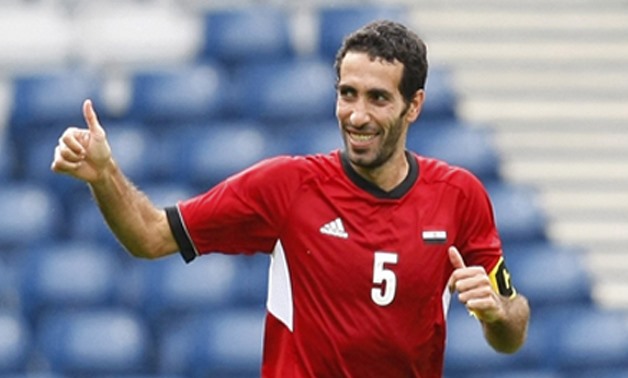
Egypt's Mohamed Aboutrika celebrates his goal during their men's first round Group C preliminary soccer match against Belarus at the London 2012 Olympic Games - Ruters
CAIRO – 14 June 2017: The Cairo Criminal Court decided on Wednesday to appoint a committee to administer all assets and properties of 1,500 Muslim Brotherhood defendants in case No. 653/2014 reviewed by State Security Prosecution.
The committee consists of representatives from the Ministry of Interior, Ministry of Finance, Ministry of Social Cooperation, Ministry of Local Development, the Central Bank of Egypt (CBE), the National Security Agency, the Financial Supervisory Authority, and the General Authority for Investment and Free Zones. The committee is presided by a representative from the Ministry of Justice.
Former football player Mohamed Abou Treika is among the defendants in the investigation.
The accusations stated in the ruling include funding the procurement of arms and militarily training for terrorists to conduct terror operations against the army and the police, promoting false news on Egypt’s economy, using the confiscated companies to monopolize goods harming the national economy, collecting foreign currencies from markets and smuggling the outlawed Muslim Brotherhood group’s money outside the country through its exchange companies.
The ruling stated that following the arrest of certain Brotherhood leaders and the confiscation of their properties, members of the supreme guide office restructured the financial committee to run the group’s investments and projects used in funding terror attacks.
The new committee is comprised of the acting guide Mahmoud Ezzat, Sadek Abdel Rahman Sadek, Khaled Abou Shady, Bahaa Saad El Shater, and Khaled El Beltagy who are all defendants in the case.
The court declared that shares in economic institutions owned by offenders were transferred to Brotherhood leaders unknown to security agencies. Examples of these institutions are hospitals, schools, charity associations, TV channels and websites.
The 1,500 Brotherhood offenders were put on terror lists in case 653/2017 reviewed by the High State Security Court as a result of their conviction of funding the Brotherhood for the purpose of conducting terror operations and harming the economy.

Comments
Leave a Comment